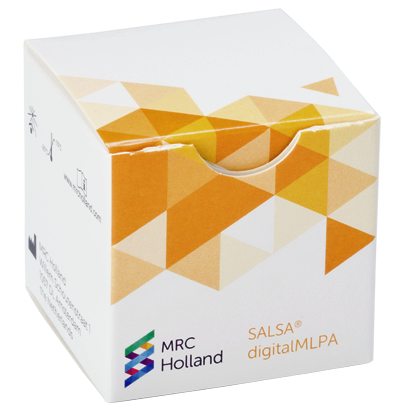P045 BRCA2/CHEK2

SALSA® MLPA® Probemix P045 BRCA2/CHEK2 detects copy number variations in the BRCA2 and CHEK2 genes.

Contents: 51 MLPA probes of which 40 probes target BRCA2, including 1 probe detecting the wildtype sequence of the c.156_157insAlu mutation, and 3 probes that target CHEK2, including 1 probe for the c.1100delC mutation.

Tissue: genomic DNA isolated from human peripheral whole blood.

Application: Hereditary breast and ovarian cancer (HBOC) syndrome, and predisposition to CHEK2-related cancer types.

IVDR certified and registered for in vitro diagnostic (IVD) use in selected territories.

Copy number variations of BRCA2 identified with P045 BRCA2/CHEK2 can be confirmed with P077 BRCA2 Confirmation.

